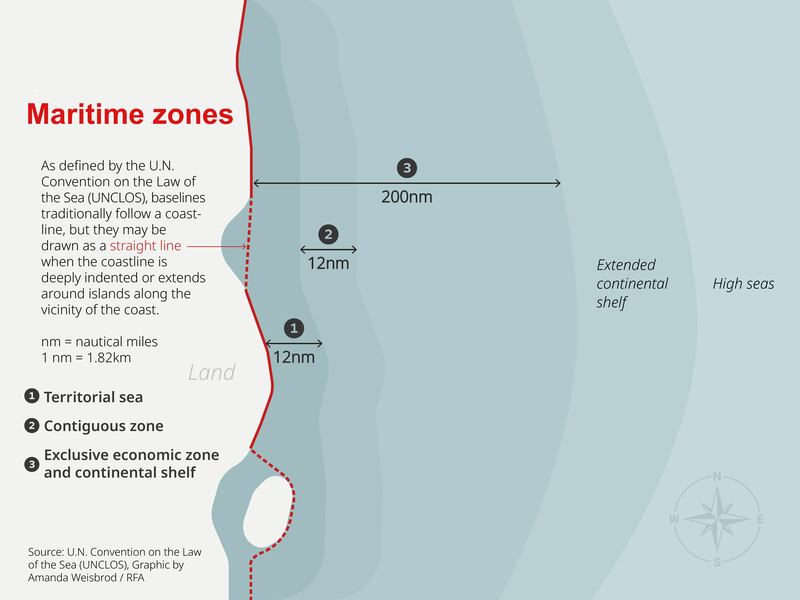Vietnam has asked that the Philippines discuss with it an extended continental shelf claim that Manila sent to the United Nations last week.
Philippine diplomats submitted a package of documents to the U.N. on June 14 to “register the country’s entitlement to an extended continental shelf” in the West Palawan region in the South China Sea.
According to the U.N. Convention on the Law of the Sea, or UNCLOS, the extended continental shelf is the stretch of seabed that extends to a maximum of 350 nautical miles (648 km) from the shore of a coastal state, which has exclusive rights to explore it or exploit its natural resources.
The Philippine Department of Foreign Affairs said in a statement that the Philippines “is entitled to establish the outer limits of its continental shelf,” and that the seabed and subsoil hold “significant potential resources that will benefit our nation and our people for generations to come.”

The U.N. Commission on the Limits of the Continental Shelf said it would look at the submission in a session between January and March next year.
The submission could bring legal challenges from Vietnam and Malaysia as they see their extended continental shelves overlapping with that claimed by the Philippines.
A Vietnamese foreign ministry’s spokesperson said on Thursday that while coastal states had the right to determine their outer continental shelf boundaries under UNCLOS, when submitting their claims “they must respect the legal and legitimate rights and interests of other relevant coastal nations with opposite or adjacent coasts.”
“Vietnam stays ready to discuss with the Philippines to seek and achieve a solution that is mutually beneficial for both countries,” spokeswoman Pham Thu Hang said.
Overlapping claims
Malaysia has yet to say anything publicly but will likely submit a diplomatic protest to the U.N., according to Malaysian sources.
China, which claims most of the South China Sea despite regional countries' objections, has rejected the Philippine submission, saying it infringed upon China's sovereign rights and jurisdiction and violated international law. Beijing said the submission should not be recognized nor considered.
In 2009, when Vietnam and Malaysia made a joint submission on their extended continental shelves, both China and the Philippines protested. The submission may have led to a Vietnamese proposal to make another joint submission, this time with the Philippines.
At a meeting between President Ferdinand Marcos and Vietnamese Prime Minister Pham Minh Chinh in Hanoi on Jan. 30, the Philippine leader "acknowledged Vietnam's interest" in pursuing a joint submission on the extended continental shelf, according to a Philippine statement.
Marcos was quoted as saying that the Philippines was willing to work with Vietnam for a joint submission “at the appropriate time.”
Questions remain over why Manila decided to make its submission unilaterally now, especially when it is facing an escalating confrontationwith China in the South China Sea and seeking the support of the ASEAN regional grouping.
Edited by Taejun Kang.
